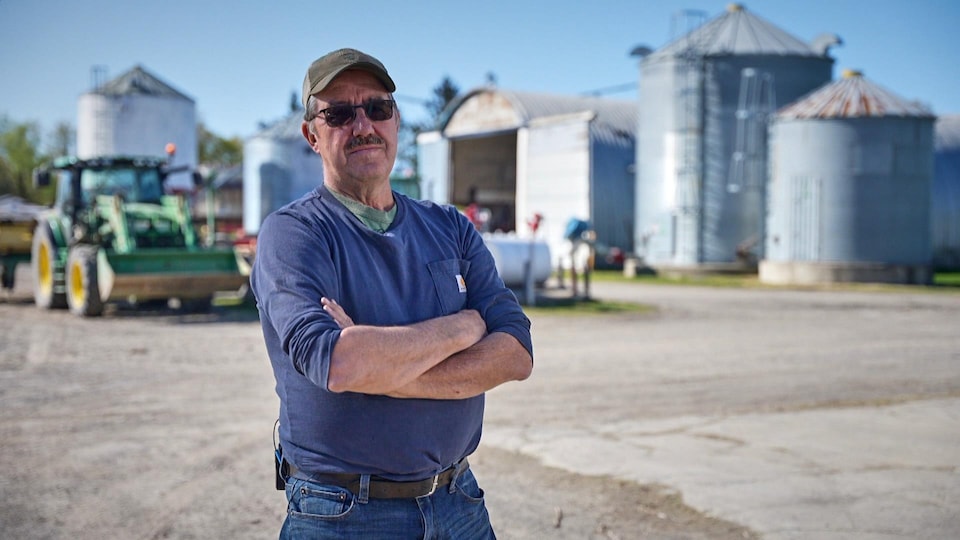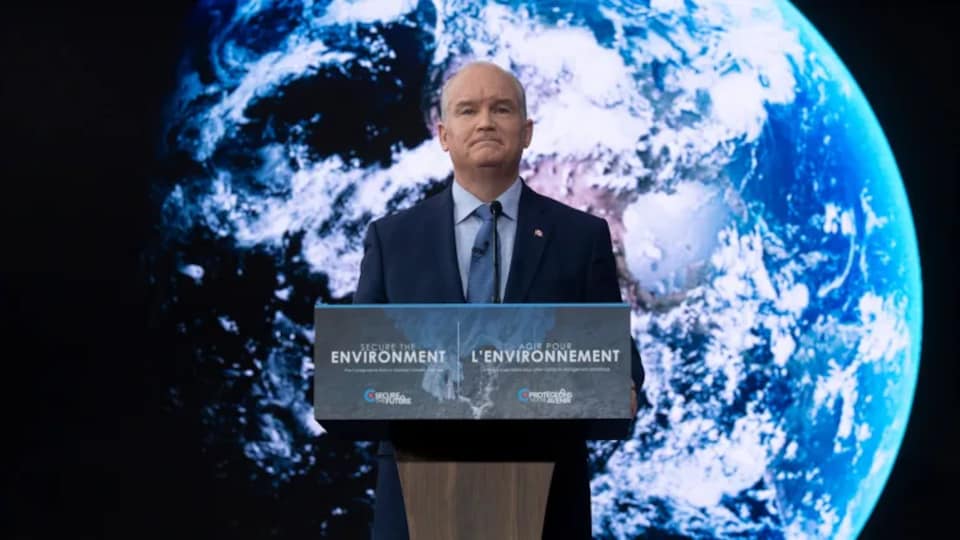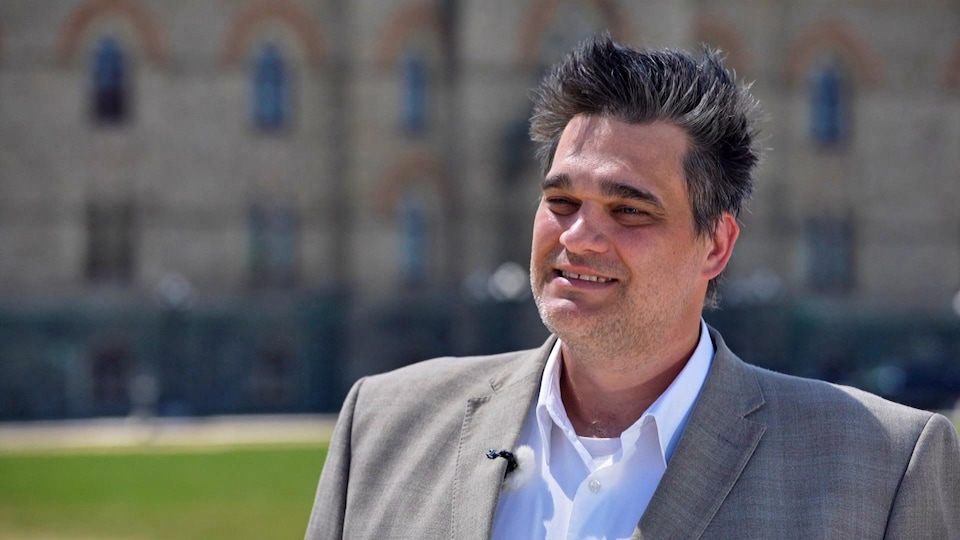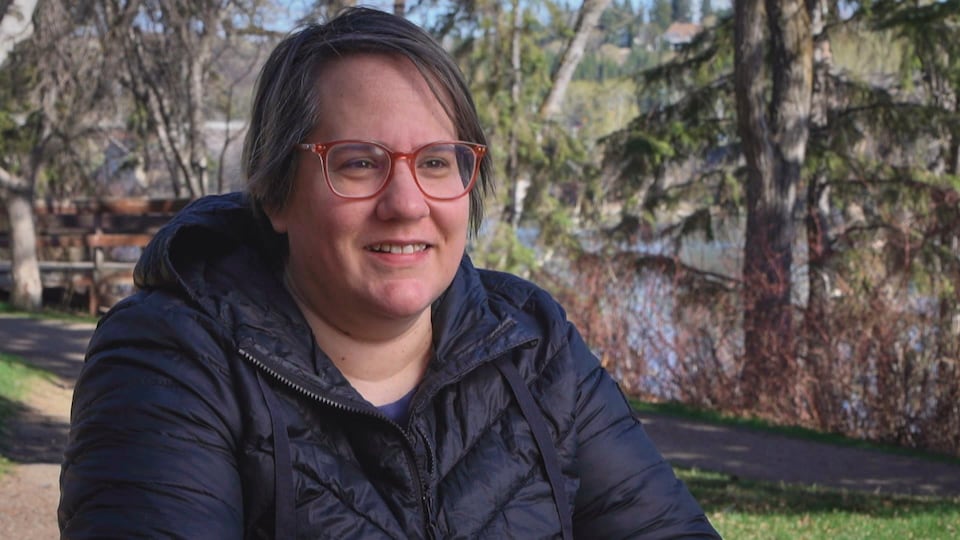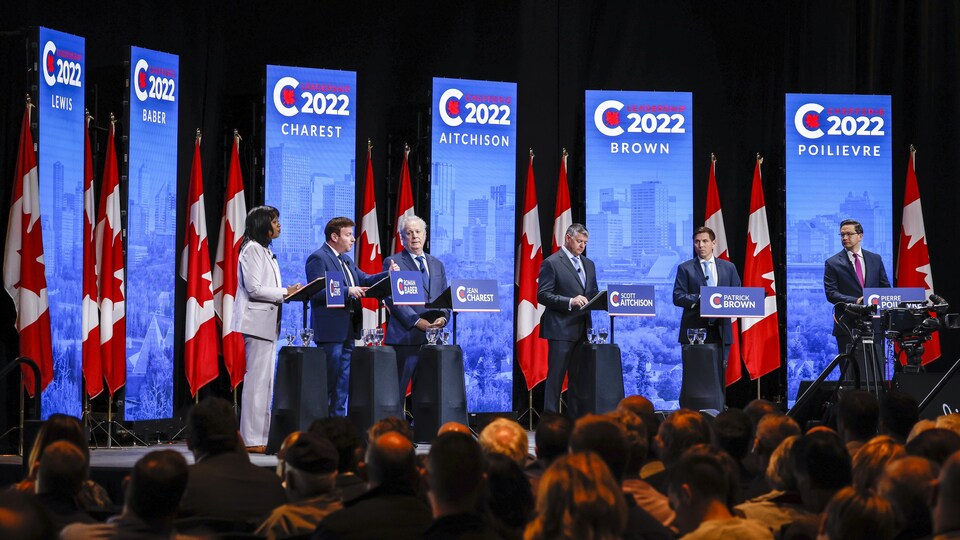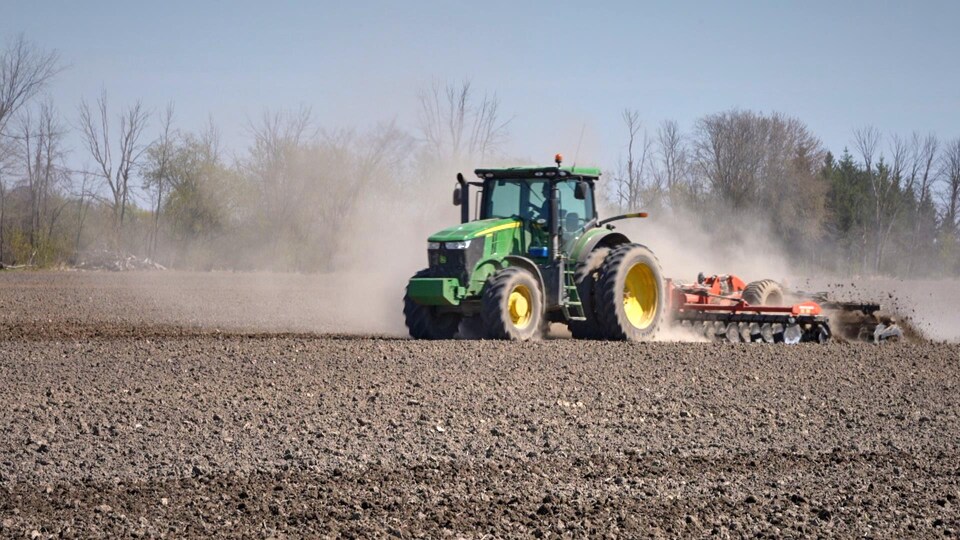Birds sing in the reeds on Michel Dignard’s farm in Embrun, near Ottawa. The farmer is preparing for a long day of sowing.
He fills up with diesel, monitors his propane reserves and checks his natural gas supply. Agriculture is highly dependent on fossil fuels.
The carbon tax is more painful to us than any other tax. I was surprised because there was no other choicegrievance of the farmer.
Michel Dignard estimates that his energy bill will nearly triple in 12 years due to the carbon tax increase, which should reach $ 170 per ton by 2030. The main culprit: his grain dryer.
” I use my dryer three months a year, and it costs $ 8,000. When the carbon tax goes up, I calculate my bill will be $ 15,000. How do I earn? “
According to him, people living in rural areas suffer from carbon tax, especially since they cannot return to public transport.
This is even more true for farmers, he said, who can hardly change their method of production to switch to renewable energies.
The farmer voted Conservative. He has a fondness for Pierre Poilievre as a candidate for leadership. Michel Dignard cares about the environment, but it’s not at the top of his list. I’d say it’s in the middle, almost.
Many members of the Conservative Party of Canada think like him. And ex-chief Erin O’Toole found out the hard way.
Not recognizing climate change
Erin O’Toole presented her green plan to the media without first consulting with her caucus. He tried a green shift that the blue party poorly received.
The boss claimed last year already climate change is a threat to our society. At the same time, a majority of convention delegates voted against a motion recognizing the existence of climate change.
The Conservative Party doesn’t think it will win an environmental election. It’s defensive, not offensive.believes Yan Plante, ex-conservative strategist and former adviser to Stephen Harper.
This is a question of electoral pragmatism, according to him.
” When people wonder if they’ll have enough money by the end of the month or if they can fill up with gas this week, I think the future of the planet is secondary, unfortunately. “
Conservative philosophy, he said, is to have a blueprint to offer people, seems to be in a store windowhe said.
If we don’t talk about the environment, we will spend a few days campaigning to defend ourselves against it. If we talk about it a little bit, at least we can focus on the rest of our message.
However, not all conservatives think the same way. Some party members are organizing to take the environment more seriously.
Preservatives for clean growth
Sarah Biggs partially hides her frustration. How can the Conservatives win without a climate plan? he said, hands in the air and eyes in the sky.
The Alberta political adviser is a mother of two, a conservative and an environmentalist. He is an activist for the group Conservatives for Clean Growth.
He believes that after three consecutive election defeats, it is time for the party to change its strategy. We must better reach the youth and voters in the city who are fleeing ushe says.
If the Conservative Party will present a viable and credible platform, it will get the share of votes it needs to win and form the government.
” I strongly believe that if nothing is done and if the environment continues to be completely ignored, the Conservatives will be in opposition for a long time. “
Sometimes Sarah feels that the subject is falling for the hearing within the party. We try to make people understand that the next financial boom could be a green boomhe says, and we didn’t want to miss the boat.
In fact, the group Conservatives for Clean Growth has offered its services to all leadership candidates to help them develop an environmental plan. According to our information, only Jean Charest’s team took advantage of this service.
The forgotten atmosphere
Aspiring Conservative leaders said little about the environment during the race. In the four hours of debate, nearly seven minutes were devoted to climate change. And the main message of the candidates revolves around the abolition of the carbon tax.
However, the group Conservatives for Clean Growth points out that the idea of imposing a carbon tax and allowing the free market is not in principle contrary to conservative ideology. Even Stephen Harper toyed with the idea while in office.
However, the Conservative Party has painted itself in a corner, Yan Plante believes. It came from a time when we demonized the carbon tax to attach a label to the liberal opponent. And now, we’re stuck here, and it’s hard after so many years to say that, ultimately, it’s a good idea.
Today, the idea of eliminating the carbon tax has become the bread and butter of a good part of the conservative base, living mainly in the countryside.
Climate and inflation
Farmer Michel Dignard lives in the rhythm of the times. He was one of the first to be directly affected by climate change.
The weather is less predictable, he says, and it’s harder to plan seed or harvest.
” There are times we eat a slap! It can be 15 degrees, the next day it drops to zero. Snowfall. Freeze, thaw. This is not good for farms. “
That, for me, is climate change. But is there a political party that can really do anything? he asked.
When he climbed on his tractor-seeder and traveled his 100 acres of land to plant his corn and soybeans, he could see the impact of climate change on his daily life.
His main concerns, however, remain inflation and the continued rise in energy prices, which poses a risk to his livelihood.
Source: Radio-Canada
